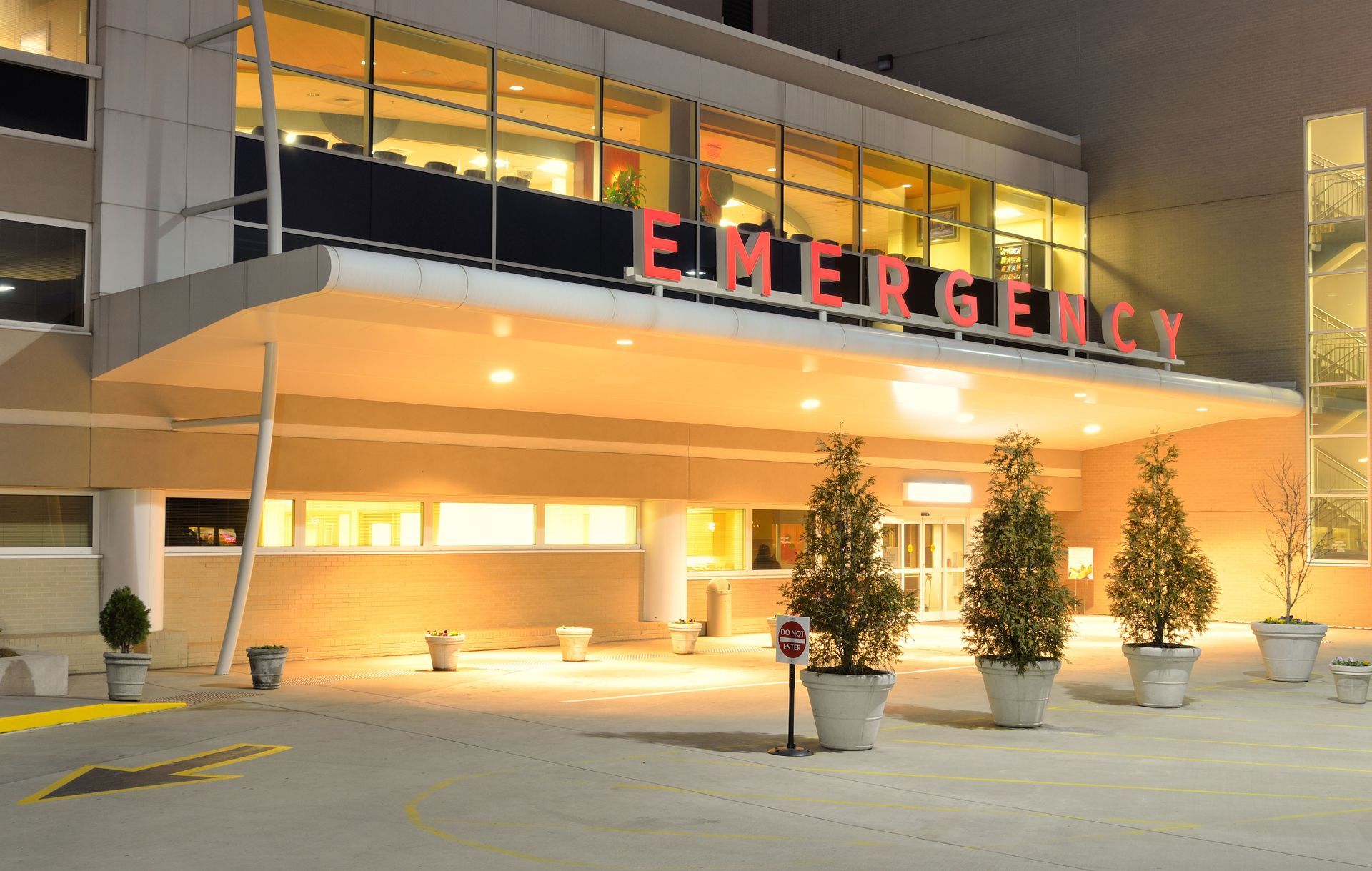October 15, 2025
In today's fast-paced world, time is of the essence. When health issues arise, the prospect of long waits at traditional healthcare facilities can be daunting. Urgent care centers offer a convenient solution for timely medical attention. This article delves into how utilizing an urgent care clinic can help you avoid unnecessary lost time without compromising the quality of care. By understanding the role of urgent care facilities, individuals can make informed decisions that benefit both their time management and health outcomes.
Understanding the Role of an Urgent Care Clinic
An urgent care clinic is a healthcare facility that provides immediate care for non-life-threatening illnesses and injuries. They serve to fill the gap between traditional primary care and emergency room services. These centers are designed to deliver prompt medical attention to patients who need timely intervention but do not require the comprehensive services of an emergency department. The primary function of urgent care is to provide easily accessible medical care without lengthy wait times. This efficiency is beneficial for both patients in need and the broader healthcare system under which they operate.
Accurate and accessible treatment at urgent care centers can cover a wide range of medical needs. Common services include treating minor fractures, sprains, cuts, and infections, as well as offering vaccinations and routine health screenings. With a variety of services available, patients can receive almost immediate relief and subsequent guidance for further medical steps if necessary. This expediency means that urgent care facilities can serve more patients without being burdened with cases that could be treated in a less time-sensitive manner. Patients are able to receive care in a timely fashion, often avoiding the frustration and inefficiency of emergency room wait times.
According to the American Board of Physician Specialties, 92% of urgent care centers report wait times of less than 30 minutes. For individuals dealing with time-sensitive health issues, this rapid response can be pivotal. The short wait times at urgent care facilities are a primary advantage, offering patients quicker access to care and reducing time away from daily responsibilities. As a bridge between primary care and emergency services, urgent care centers play a crucial role in reducing the overall strain on the healthcare system. By efficiently addressing immediate medical needs, urgent care facilities alleviate congestion in emergency rooms, allowing hospitals to focus on more severe cases.
Reducing Wait Times
Wait times in healthcare settings are a significant factor in patient satisfaction and outcomes. Urgent care centers have been lauded for their ability to offer significantly reduced wait times compared to traditional emergency rooms. Statistics show that the majority of patients at urgent care centers are seen in less than 30 minutes. This stark contrast in wait times is a testament to the efficiency and streamlined processes employed by these centers. By providing quicker service, urgent care facilities can ensure better patient experiences and outcomes while maximizing the number of patients served.
Reduced wait times at urgent care centers are also beneficial in minimizing patient distress and discomfort. In the case of non-emergency medical issues, patients can often afford neither the time nor the physical stress associated with long waits at emergency rooms. Waiting for prolonged periods can exacerbate patient symptoms and lead to less satisfactory healthcare experiences. By addressing medical issues promptly, urgent care centers not only improve patient satisfaction but also contribute to the swift recovery and return to normal activities. This reduction in wait time plays a crucial part in enabling individuals to maintain their daily schedules more effectively.
Comparing Costs
When comparing the costs associated with urgent care visits with those incurred through emergencies at hospitals, urgent care centers often present a more cost-effective option. Emergency room visits can be prohibitively expensive, with patients facing significant financial burdens for services that urgent care centers can handle at a lower cost. Insurance providers also recognize the cost savings, often preferring referrals to urgent care for those non-critical medical conditions. This cost-effectiveness benefits both the patients and the wider healthcare insurance system, fostering a more sustainable model of healthcare access. Economically, choosing urgent care over emergency room visits can lead to substantial savings for patients without sacrificing the quality of care received.
Beyond immediate cost-effectiveness, urgent care plays a role in reducing further healthcare expenses through timely interventions. By swiftly addressing medical issues and preventing complications, urgent care centers help to prevent the escalation of conditions that can become costly over time. Early medical intervention often mitigates the need for more extensive testing or follow-up treatments. This approach ensures that patients do not face undue financial strain arising from deferred care. Timely access to medical care can forestall conditions that, if untreated, escalate into more serious health issues requiring costly long-term management.
Assessing Convenience Factors
The strategic placement of urgent care centers is one of their strongest assets when it comes to convenience. These facilities are often located in areas that are easily accessible to the public, such as city centers or suburban areas with high footfall. Their locations are deliberately chosen to be near residential zones and transport links, making it easier for people to access care without having to travel far. This easy access ensures that patients can seek medical attention without delay, thereby reducing potential waiting times and time spent traveling. By strategically placing urgent care centers where they are most needed, healthcare providers ensure greater community access to immediate medical care.
In addition to accessible locations, urgent care centers also offer extended hours of operation to maximize convenience for patients. Unlike primary care offices that typically operate within conventional business hours, urgent care facilities often remain open after hours and on weekends. This allows patients to seek medical help at times that are convenient for them, such as after work hours or on weekends when primary care offices are closed. The extended hours cater to patients who may find it difficult to attend medical appointments during typical business hours due to work or personal commitments. This flexibility plays a crucial role in making healthcare more accessible to those with demanding schedules or unexpected health concerns.
Analyzing Quality of Care
The quality of care provided at urgent care centers is closely tied to the qualifications and expertise of their medical staff. These centers employ a range of healthcare professionals, including doctors, nurses, and support staff, who are skilled in handling various non-emergent medical conditions. Many physicians working in urgent care centers are board-certified, possessing a level of expertise that ensures high standards of patient care. This high level of qualification ensures that patients receive accurate diagnoses and appropriate treatments promptly. With trained staff capable of addressing a myriad of health issues, urgent care centers offer quality care that instills patient confidence in the services received.
Patient outcomes and satisfaction are central metrics by which the quality of care at urgent care centers is measured. These facilities regularly gather patient feedback to assess satisfaction levels and identify areas for improvement. Patient surveys often report high satisfaction rates, indicating that urgent care centers successfully meet the expectations of their clientele. The prompt attention and comprehensive care provided by urgent care centers lead to positive patient outcomes and experiences. High patient satisfaction not only reflects positively on the quality of care but also contributes to a strong reputation for urgent care centers as reliable providers of healthcare services.
An urgent care clinic offers a vital solution to modern-day healthcare challenges by minimizing lost time, ensuring cost-effective and convenient access to quality care. Through their strategic operation and community-oriented services, they not only serve individual health needs but also contribute to broader public health goals. As the healthcare landscape continues evolving, urgent care will likely play an increasingly critical role in ensuring timely and efficient medical attention for all. With reduced wait times, strategic convenience factors, and high-quality care, an urgent care clinic represents a crucial component in the pursuit of accessible healthcare solutions that prevent unnecessary time loss. Their contributions extend beyond patients, positively impacting community health and economic stability, with a focus on a better-informed and healthier society. Are you looking for an urgent care clinic? Reach out to Family Medical Center at Round Rock to see how we can assist you.






